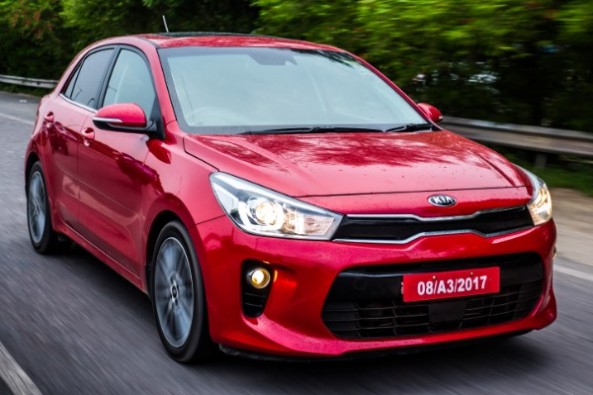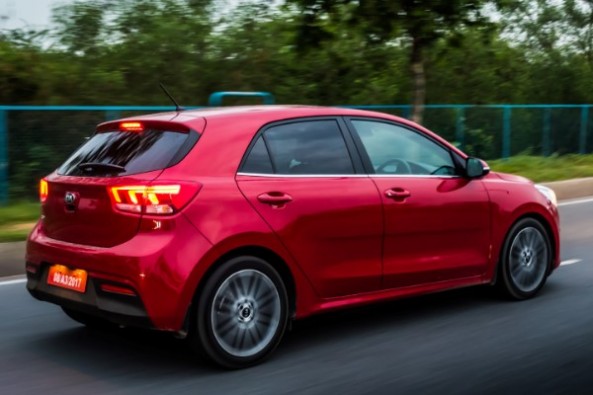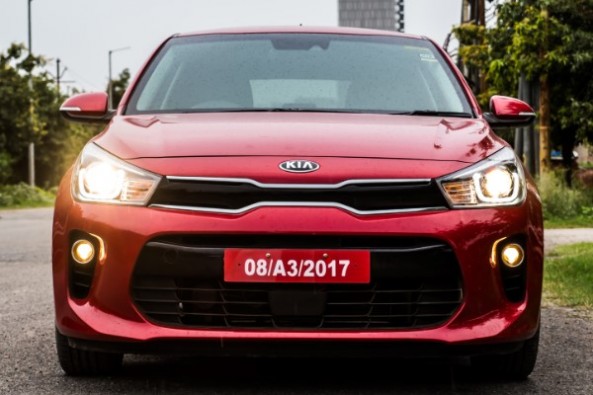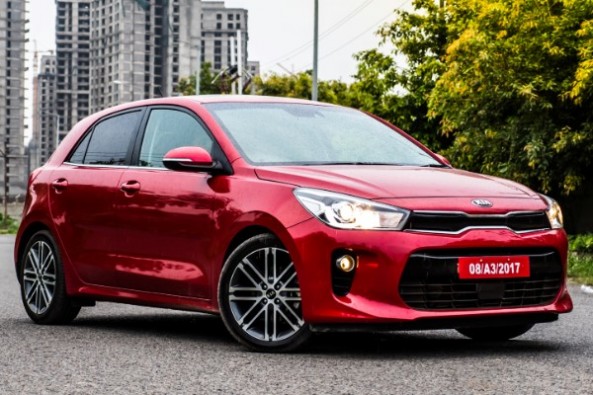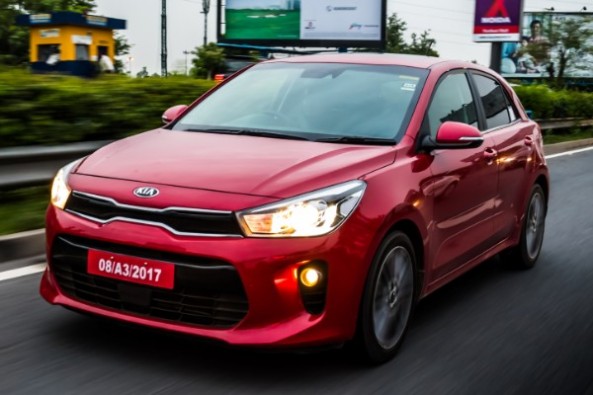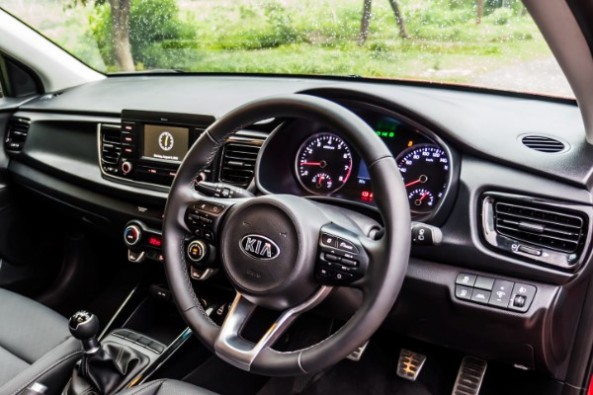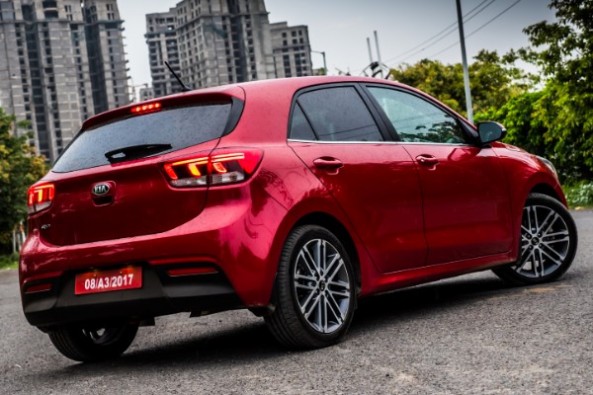After showcasing their products at Auto Expo 2018, Kia is all set to enter India this year. While the first of their product launches would be the SP Concept based compact SUV, the brand has many cars in their portfolio that’ll cater nicely to the needs of the Indian buyer. One such product is the Kia Rio, a premium hatchback based on the Hyundai Elite i20. With Hyundai and Kia being sister companies, it’s very likely that the Rio will share lots of things with the Elite i20. We test drive the international-spec Kia Rio to see whether it will be successful in creating a space for itself in the premium hatchback segment in India.
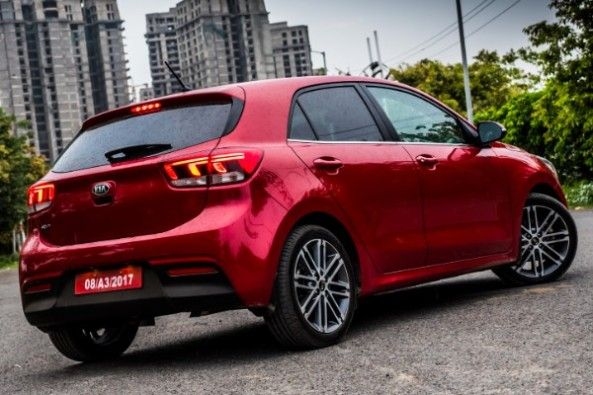
Exteriors – At the very first glance, you’ll realize that the Kia Rio is a looker from all angles. The international-spec version sits lower to the ground, gets a sunroof and bigger alloy wheels as well. The Kia Rio gets a sporty design with the signature Tiger nose grille and a projector headlight setup with U-shaped LED DRLs. The car also houses a large air intake and projector fog lights on the lower part of the bumper. The side profile is dominated by the dual-tone alloy wheels. At the rear, there are LED tail-lights on offer while the black finish on the bumper cuts off the visual mass slightly. Overall the Rio is very European in terms of its design and is easily one of the most attractive looking cars in its class.
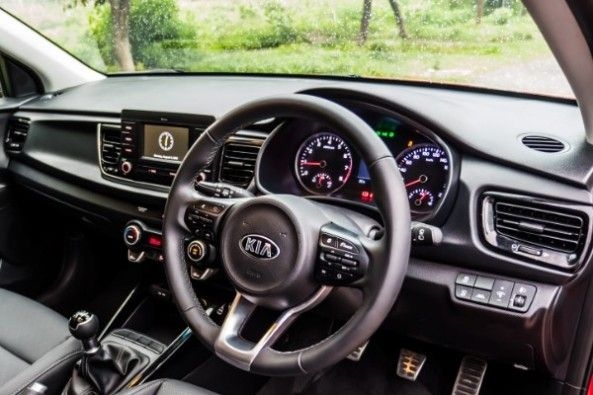
Interiors – The Kia Rio’s cabin gets an all-black treatment. The quality levels of the materials used inside are just surreal. The 3-spoke steering wheel gets lots of buttons and looks as well as feels good to hold too. The instrument console is similar to the one on the Hyundai Elite i20, however, the test car’s infotainment system came with a very small screen which will expectedly make way for a touchscreen unit with all sorts of connectivity options. The test car was also equipped with climate control AC, electrically adjustable and foldable ORVMs, engine start-stop button, rear parking camera with adaptive guidelines, cruise control, electric sunroof and faux leather upholstery. While there is generous space at the rear, it’s less than that of an Elite i20, moreover, the Rio misses out on rear AC vents. However, the seats are foldable in 60:40 ratio for more practicality and there is 300-litres of boot space for the long trips.
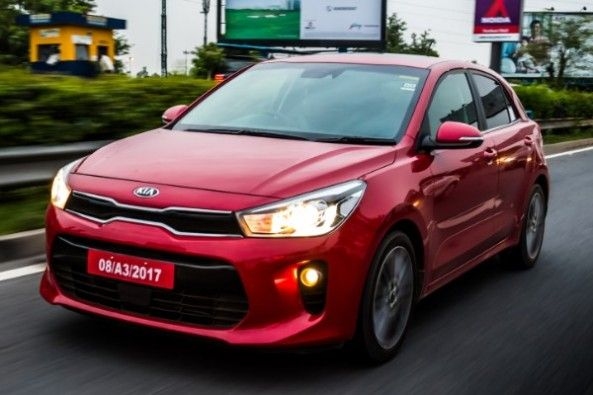
Performance – The test car was powered by the same 1.2-litre Kappa petrol motor that's seen under the hood of Hyundai's Grand i10 and the Elite i20. The 1.2-litre engine produces 83 PS of power and 115 Nm of torque. While the low-end performance lacks punch, the top-end is where this powerplant really works well. The 5-speed gearbox is slick-shifting and the powertrain is superbly refined. The Kia Rio is a fun car to drive, thanks to the light clutch. The car will return about 11-15 km/l which is on par with the Hyundai Elite i20.
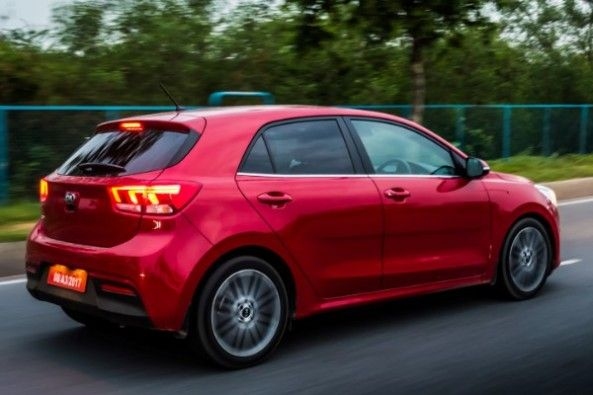
Driving Dynamics - Rio's suspension is set up on the stiffer side. While body control is good, the ride quality feels choppy. A thud can be heard every time the car goes over bad roads. This is largely to do with the low-profile rubber but again, due to the wider tyres, the car feels planted and stable. When launched in India, Kia is most likely to offer the vehicle with smaller wheels and tweak the suspension which would improve the ride quality to a great extent. Steering feel and feedback aren’t really good but the brakes offer stupendous stopping power.
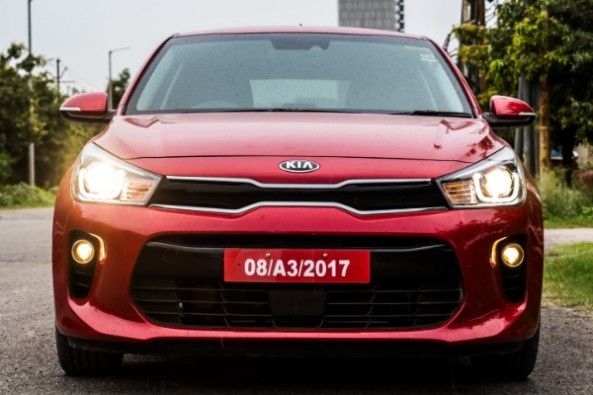
Safety and After Sales Service - It remains to be seen what safety features will be offered in the India-spec Rio. However, considering it is likely to be priced at a premium over the Elite i20, expect it to be on par with its Korean cousin. The Kia has also scored a 5-star rating in the Euro NCAP Crash Test. The brand is expected to start selling its cars from late 2019 or early 2020. Kia’s dealership network here is expected to follow sister brand, Hyundai’s footsteps and be quite large.
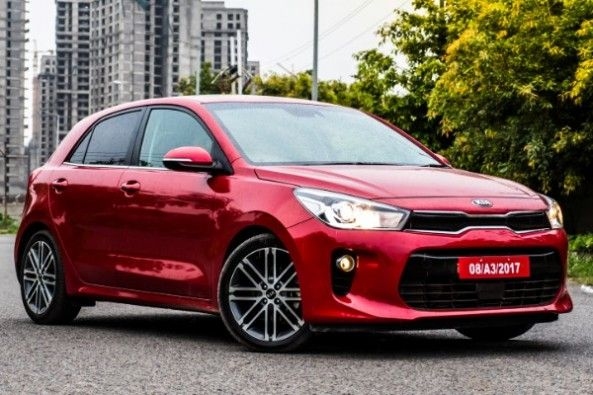
Verdict - The Kia Rio looks like a complete package. When launched in India, it will also get the 1.4-litre diesel engine along with the 1.2-litre petrol engine. It all boils down to how Kia will price the hatchback. With the right pricing, the Kia Rio would definitely impact the sales of the Maruti Baleno and the Hyundai Elite i20. Kia will launch their first car by mid-2019 and the Rio will be followed soon after.
